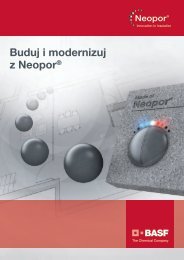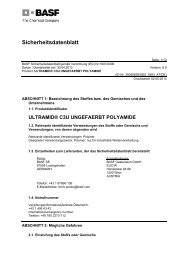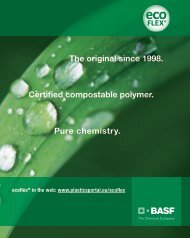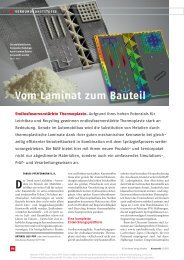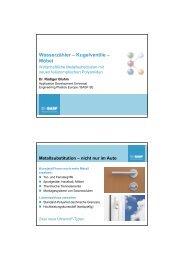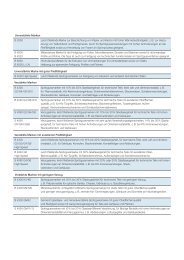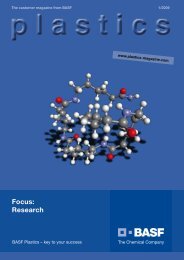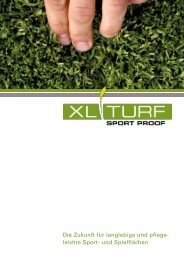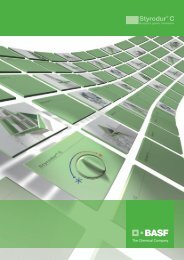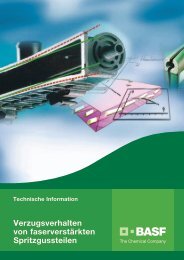ecovio - BASF Plastics Portal
ecovio - BASF Plastics Portal
ecovio - BASF Plastics Portal
You also want an ePaper? Increase the reach of your titles
YUMPU automatically turns print PDFs into web optimized ePapers that Google loves.
<strong>ecovio</strong> ® bag filled with organic waste<br />
Complete biodegradation to:<br />
• Water<br />
• CO 2<br />
• Biomass<br />
“Oxo-degradable” bag filled with organic waste<br />
• No complete biodegradation<br />
(does not comply with international composting standards)<br />
• Disintegration to plastic fragments (PE)<br />
• Premature loss of mechanical properties upon<br />
exposure to strong light<br />
Bio-polyethylene (PE) bags filled with organic waste<br />
• Biodegradation impossible<br />
• Disposal to landfill<br />
(prohibited in some European countries)<br />
• Incineration (not appropriate due to the high content<br />
of water in organic waste)<br />
“Oxo-degradable” plastics and bio-polyethylene plastics are not compostable<br />
“Oxo-degradable” PE films are conventional plastics which only decompose with the addition of special<br />
additives. Triggered by exposure to UV or heat, they oxidize the polymer chains and break them up into<br />
smaller fragments. To date it has not been possible to scientifically prove any biodegradability of these<br />
PE fragments after decomposition that meets the composting standards, whether or not the materials<br />
were pretreated with UV radiation or heat.<br />
Bio-polyethylene (PE) plastics are made with renewable resources. But they too are not biodegradable.<br />
Compostability does not depend on the origin of the raw materials, but on the chemical structure of<br />
the polymer.<br />
9



